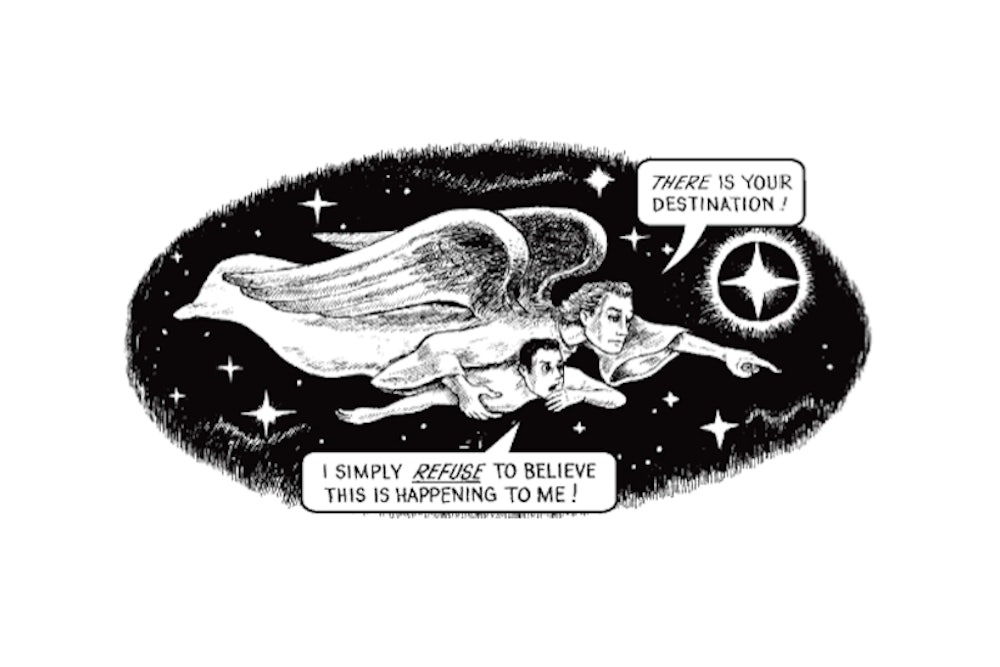I'm probably the only person who had this reaction to this weekend's Trump taxes story.
There seem to be two parts to the story as originally presented (it's evolving rapidly). The first, which was generally the primary focus of reports and interviews on the subject, was that we now have evidence that supports a scenario by which Donald Trump might have legally avoided paying taxes for almost two decades.
Even with a conventional candidate, I'm not certain how big a story this would be. Of course, not paying taxes always looks bad, but does this seem that much worse to the general audience than any of the other byzantine maneuvers be very rich use to minimize their tax burden? (Assuming that all of this is legal, but more on that in a minute)
How do you make a small fortune? Give Donald Trump a large one.
Then there's the part about losing a billion dollars. In some sense, I think it might have been better for Trump had he been caught evading taxes in a less legal but more clever way. If it came down to a choice, he would much rather be seen as sharp and successful than as honest and ethical. It is no coincidence that when the subject came up during the debate, Trump pointed at not paying taxes as evidence that he was "smart." Not paying taxes, even for a number of years, because you lost a huge amount of money does not send the proper message.
Now we're learning that Trump's accountants were a bit more clever and considerably more sleazy than initially reported, but I suspect that those later developments are playing more to the news junkie crowd, and even that crowd seems to be ignoring the question that interests me.
Why the New York Times?
As we have frequently mentioned before, the best news analyst of the campaign has clearly been Josh Marshall.
Talking Points Memo is a small organization, but pound for pound they do unequaled work. If you wanted to leak details of Trump's finances to the people who could best make sense of it, that would be an excellent choice.
If, however, you wanted to limit yourself to a large organization, the obvious choice would be the
Washington Post. In terms of both quality and quantity, the paper's reporting on Trump (particularly that of David Fahrenthold) has left all of its peers in the dust.
If you were basing your decision on individual journalists rather than organizations, Marshall and Fahrenthold would certainly be good choices, but given the combination of Trump and taxes, I might go with
David Cay Johnston.
If, however, you wanted to make an impact, wanted to dominate the conversation the next day, you would probably do what the source did in this case and send your information to
the New York Times.
The New York Times continues to hold the most valuable real estate in journalism. If you have a cause you want to promote or a narrative you want to shape, there is simply no one else who can compete. This has all sorts of implications for the paper and for journalism in general.
To be fair, the paper has a large number of fantastic reporters and when it focuses its efforts on solid, old-fashioned investigative journalism, the results can be remarkable, but the paper's position also means that it can scoop the competition with little or no effort. In a very real sense, the news comes to it.
This access to sources can easily become a dependence on them. We previously talked about the decade of terrible journalism marked by Whitewater, the 2000 election, and the build up to the Iraq war. We also talked about the lead role that
the New York Times played in all three of those stories.
One important common thread in all three stories was that none of them were driven in a significant way by real original investigative reporting. In all the cases, the narratives were largely shaped by sources with ulterior motives who found cooperative reporters such as Judith Miller who were willing to pass on what they were told.
So, what are the lessons we should draw from this?
1. In journalism as in so many other things, it is good to be the king. As we just said, the news often comes to you. On top of that, when multiple organizations are reporting the same story, yours is the one that tends to be quoted the most, even when your coverage is based on reporting of others. These and other factors make it relatively easy for the perceived industry leader to maintain its position. They also present a strong temptation to rest on your laurels.
2. Being the king also brings with it huge responsibilities. Bad journalism from the New York Times can do more damage than bad journalism from any other publication.
3. The New York Times unique access to leaks and highly placed sources is both a resource and a risk. In the case of the Trump tax returns. In the case of the Trump tax returns, it was the former but recently it has often been more the latter.
Consider this
passage from then public editor Margaret Sullivan (I wonder if anyone at the paper realizes how much they lost when she left).
Mistakes are bound to happen in the news business, but some are worse than others.
What I’ll lay out here was a bad one. It involved a failure of sufficient skepticism at every level of the reporting and editing process — especially since the story in question relied on anonymous government sources, as too many Times articles do.
…
The Times needs to fix its overuse of unnamed government sources. And it needs to slow down the reporting and editing process, especially in the fever-pitch atmosphere surrounding a major news event. Those are procedural changes, and they are needed. But most of all, and more fundamental, the paper needs to show far more skepticism – a kind of prosecutorial scrutiny — at every level of the process.
Two front-page, anonymously sourced stories in a few months have required editors’ notes that corrected key elements – elements that were integral enough to form the basis of the headlines in both cases. That’s not acceptable for Times readers or for the paper’s credibility, which is its most precious asset.
If this isn’t a red alert, I don’t know what will be.
This is the irony of
the New York Times. Its greatest advantage often leads to its worst moments.



